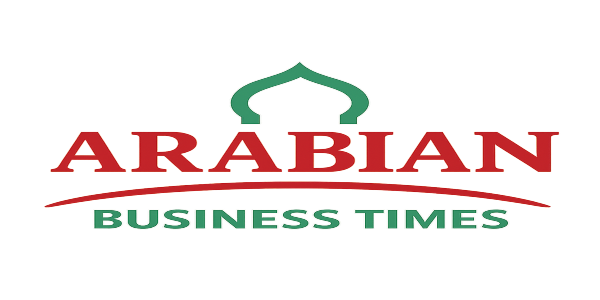The UAE is rapidly emerging as a global leader in inclusive education, driven by a strong commitment to supporting students of determination. With forward-thinking policies, investment in cutting-edge EdTech, and partnerships with global innovators, the country is reshaping how children with special needs access quality education. From AI-powered platforms to immersive learning environments, technology is playing a crucial role in breaking barriers, improving accessibility, and empowering every learner. This blog explores the latest trends, practical solutions, and transformative initiatives redefining special needs education across the UAE.
AI-Powered Personalized Learning
Artificial intelligence is at the heart of UAE’s inclusive education strategy. AI-powered platforms analyze learning patterns, strengths, and challenges for each student, offering tailored lesson plans and real-time feedback. These systems help educators identify learning difficulties early and adjust strategies to meet individual needs. In Dubai and Abu Dhabi, schools are piloting adaptive AI systems that create custom activities for students with autism, ADHD, and dyslexia. By personalizing the pace and style of education, AI not only improves academic outcomes but also boosts confidence, engagement, and independence in students of determination.
Assistive Technology & Accessibility Tools
Assistive technology (AT) is transforming the way special needs students access education in the UAE. Tools like speech-to-text software, screen readers, Braille displays, and augmentative and alternative communication (AAC) devices are becoming essential learning companions. Schools and resource centers, such as Zayed University’s Assistive Technology Center and the Rashid Centre for People of Determination, are equipping classrooms with specialized devices and training educators to use them effectively. These tools ensure that students with visual, hearing, or mobility impairments can fully participate in learning activities. The growing availability of localized AT solutions also ensures cultural relevance and accessibility for UAE families.
Virtual, AR, and Immersive Learning Environments
Immersive technologies such as augmented reality (AR) and virtual reality (VR) are opening new possibilities for special education in the UAE. These tools create safe, interactive spaces where students can practice social skills, explore real-world scenarios, and engage with content in ways that traditional classrooms cannot provide. VR headsets, sensory-friendly simulations, and AR-enabled textbooks are being integrated into pilot programs across Dubai and Abu Dhabi. These innovations not only make learning engaging but also help students with sensory or comprehension challenges experience education in a more personalized and accessible way.
Inclusive Platforms & EdTech Rollouts
The UAE is actively investing in inclusive learning platforms that cater to diverse educational needs. Initiatives like the Dubai Paperless Strategy and Smart Learning Program have paved the way for specialized apps and platforms designed for students of determination. Platforms such as Speedy Labs are piloting AI-driven solutions that identify invisible disabilities and provide tailored learning resources. Schools across Dubai and Abu Dhabi are integrating these platforms to offer gamified lessons, real-time progress tracking, and parent dashboards. By focusing on inclusivity from the ground up, the UAE is setting a global benchmark for accessible and adaptive education systems.
Universal Design for Learning (UDL) & Ethical Implementation
Universal Design for Learning (UDL) is becoming a cornerstone of special education in the UAE, ensuring that classrooms and digital platforms are designed for all learners from the start. Schools are adopting flexible teaching methods, multiple means of engagement, and accessible materials to meet varied learning needs. Alongside UDL, there is a growing emphasis on ethical implementation of technology, including data privacy, cultural sensitivity, and responsible AI use. This approach ensures that while students benefit from advanced technology, their safety, dignity, and inclusivity remain a top priority.
Supporting Infrastructure & Institutions
The UAE’s inclusive education ecosystem is backed by strong infrastructure and government support. Organizations like the Knowledge and Human Development Authority (KHDA), Abu Dhabi Department of Education and Knowledge (ADEK), and Sharjah Private Education Authority (SPEA) are driving nationwide initiatives to integrate assistive technology into schools. Centers such as Zayed University’s Assistive Technology Resource Center and the Rashid Centre for People of Determination provide training, equipment, and research to advance special education. These efforts, combined with ongoing government investment, are creating a robust framework to ensure every student has access to the tools and support they need to succeed.
Practical Tips for Educators & Institutions
For schools and educators, integrating technology into special education requires careful planning. Start by assessing students’ individual needs and selecting assistive tools aligned with the Universal Design for Learning (UDL) framework. Provide teachers and staff with ongoing training to ensure smooth adoption, and involve families to create a supportive learning ecosystem at home. Regular progress monitoring through data analytics helps refine teaching methods and ensure positive outcomes. Prioritizing culturally relevant solutions and strong cybersecurity is also essential in the UAE’s tech-forward education landscape.
Impact on Families & Students
Technology is reshaping education not only for students but also for their families. Parents now have access to dashboards and apps that track their child’s progress, provide tailored resources, and suggest personalized learning strategies. These tools foster better communication between schools and families, helping parents feel more confident and involved in their child’s development. For students, technology promotes independence, engagement, and confidence, ensuring that every learner—regardless of ability—has the opportunity to thrive.
FAQs
1. What technologies support students of determination in UAE schools?
Speech-to-text tools, screen readers, Braille devices, AI-powered learning apps, and AR/VR platforms are widely used to support accessibility and learning in UAE schools.
2. How does AI improve special needs education?
AI identifies learning gaps, personalizes lesson plans, and provides real-time feedback to educators, improving both engagement and outcomes.
3. Are assistive tools affordable in the UAE?
Many schools provide assistive technology through government-backed initiatives, while private solutions are becoming more accessible with localized products.
4. Which UAE centers offer tech support for special needs?
Centers like Zayed University’s Assistive Technology Resource Center and the Rashid Centre for People of Determination offer equipment, training, and expertise.
5. How can parents access and use EdTech at home?
Parents can collaborate with schools to access recommended apps and platforms, use progress-tracking dashboards, and join workshops for effective home support.

